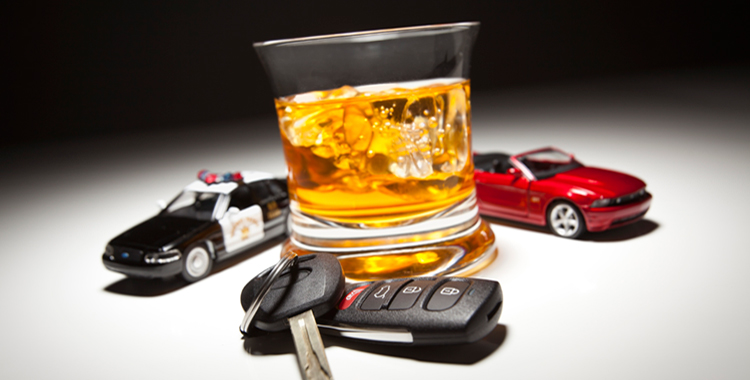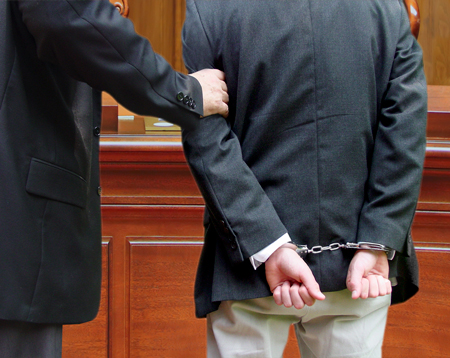Violent Crimes Resulting in Death
Serious Charges Require Serious Expertise
Violent crimes carry the heaviest punishments available in Utah law. They can never be expunged from your record and, as a result, can prevent any other crimes—even misdemeanors—from being expunged as well. These are serious charges and require serious attention. Don’t wait to hire an attorney.
Call Wasatch Defense Attorneys at 801.980.9965 and Schedule a FREE No-Obligation Consultation
Manslaughter
Manslaughter is defined as causing the death of another person without premeditation. According to Utah law, premeditation is defined as planning, plotting or deliberating before doing something.
Manslaughter is divided into two distinct categories: voluntary or involuntary. Voluntary manslaughter is usually referred to as a “killing of passion” or “a heat of the moment killing”. These charges depend on the perpetrator knowing that the act would result in the death of another person, but not planning to commit the act before that moment.
Involuntary manslaughter happens when another person’s death is caused by accident or reckless conduct. If you unintentionally cause an automobile accident and it results in the death of someone else, you could be charged with vehicular manslaughter. Anyone facing involuntary or vehicular manslaughter charges will typically face lesser penalties in comparison to regular manslaughter.
DUI Manslaughter
 Driving while drunk is not a good idea. And if an intoxicated driver kills another person— whether the victim is another driver or a pedestrian—that driver could be charged with DUI manslaughter. The main distinction between murder and manslaughter is intent. Murder generally requires an intentional and malicious mens rea (mental state); whereas manslaughter is an unintentional or inadvertent killing. DUI manslaughter charges are commonplace when someone has been killed in an accident involving an intoxicated driver. DUI manslaughter can arise from ordinary negligence, such as violating a traffic law; or may arise from reckless action, such as driving on a sidewalk. Recklessness is similar to criminal negligence, but there is a subtle difference: criminal negligence is triggered when the defendant reasonably should have known of the risk; whereas recklessness involves the defendant actually ignoring or consciously disregarding the risk. However, regardless of the underlying mental state, DUI manslaughter is a serious crime with severe implications.
Driving while drunk is not a good idea. And if an intoxicated driver kills another person— whether the victim is another driver or a pedestrian—that driver could be charged with DUI manslaughter. The main distinction between murder and manslaughter is intent. Murder generally requires an intentional and malicious mens rea (mental state); whereas manslaughter is an unintentional or inadvertent killing. DUI manslaughter charges are commonplace when someone has been killed in an accident involving an intoxicated driver. DUI manslaughter can arise from ordinary negligence, such as violating a traffic law; or may arise from reckless action, such as driving on a sidewalk. Recklessness is similar to criminal negligence, but there is a subtle difference: criminal negligence is triggered when the defendant reasonably should have known of the risk; whereas recklessness involves the defendant actually ignoring or consciously disregarding the risk. However, regardless of the underlying mental state, DUI manslaughter is a serious crime with severe implications.
To prove DUI manslaughter, the state must also prove the motorist was operating the vehicle under the influence of alcohol. The automobile homicide statute defines, “under the influence,” as meaning the person had a blood alcohol content (BAC) of .05% or more; or was impaired by drugs or alcohol to a degree that rendered the person incapable of driving safely. To show that the motorist was impaired, the state must prove at least one of the following facts beyond a reasonable doubt:
- The defendant was driving with a BAC (blood alcohol content) of 0.08 or higher.
AND/OR
- The defendant was “incapable of safely operating a vehicle” due to being under the influence of drugs and/or alcohol.
Utah has a distinct and separate statute for fatal accidents that occur while the driver is texting or otherwise distracted by a mobile cellular electronic device. see Utah Code § 76-5-207.5. Like other varieties of automobile homicide, the crime constitutes either a second or third-degree felony— depending on whether the driver was negligent or criminally negligent. But unlike DUI manslaughter, the prosecutor does not need to show that the defendant was impaired or intoxicated by drugs or alcohol.
Lastly, a defendant cannot be convicted of vehicular homicide unless there’s proof that the motorist was the actual and proximate cause of the death. In other words, there needs to be a direct link between the defendant’s driving and death. Actual causation is shown by proving that the motorist factually precipitated the trauma that ultimately resulted in death, and proximate cause is proven by demonstrating that no superseding cause cut off liability. If either actual or proximate cause is absent, the defendant cannot be convicted.
Penalties for Conviction
Penalties for DUI manslaughter can be quite harsh. If convicted, defendants lose their driver’s license, must pay restitution to victims, and can face a long prison sentence. Manslaughter is a second-degree felony, meaning the sentence ranges from 1 to 15 years, and carry a maximum criminal fine of $10,000. Additionally, under Utah Code § 76-5-205(3)(a), any defendant convicted of manslaughter “shall have [their] driver license revoked… if the death of another person results from driving a motor vehicle.” Meaning that all drivers convicted of automobile homicide face at least a one-year license revocation. The consequences of an automobile homicide conviction largely depend on the circumstances, and Utah applies a tiered system of penalties:
- Negligence: Automobile homicide that involves simple negligence is a third-degree felony that carries a penalty of up to five years in prison and a maximum of $5,000 in fines.
- Recklessness: Criminally reckless vehicular homicide is a second-degree felony that carries a minimum penalty of one year of prison (with a maximum sentence of up to 15 years in prison) as well as $10,000 in fines.
- Felony DUI Manslaughter: Where an automobile homicide conviction involves an intoxicated driver and the intoxicated motorist has a prior DUI conviction, the crime is a second-degree felony (see penalties above) regardless of whether committed with simple or criminal negligence.
Homicide
Most people know that homicide refers to the death of a person, but even though “homicide” and “murder” are sometimes used interchangeably, they actually refer to two very different legal charges. Homicide is whenever someone causes the death of another person while murder is killing someone on purpose. The perpetrator’s intent is the key difference between the two.
One of the most common homicide charges is vehicular homicide. If an accident results in the death of another person, it can count as vehicular homicide. Unlike vehicular manslaughter, vehicular homicide is usually for when a person caused the death of someone else while driving drunk or under the influence of drugs or medication. These are serious charges that can result in the revocation of your driver’s license and a long jail sentence.
Vehicular Homicide
If a defendant kills another person what distracted, they may face severe criminal charges. Criminal homicide is generally defined as the intentional killing of another person with malice of forethought. However, vehicular or automobile homicide is a sub-type of homicide that involves the killing of another person due to recklessness, such as texting while driving. see Utah Code § 76-5-207. The crime is not constrained only to automobiles but also encompasses deaths caused by the distracted operation of motorcycles, boats, and even airplanes.
Utah state code currently enumerates the operation of a mobile cellular device as an element of vehicular homicide. While some drivers may feel they can competently operate a vehicle while talking or texting, the consequences of a mistake could be dire. To avoid unnecessary criminal charges, and to ensure your full attention while driving, simply do NOT operate a cellphone or other mobile device while driving.
Negligent Homicide
Another form of homicide is negligent homicide. This type of homicide is considered the lightest homicide charge and is used when the death of another person is caused by criminal negligence. Criminal negligence can be as simple as not helping an injured person or ignoring calls for help. For example, a person might have forgotten to take a piece of tape off an airplane part that resulted in a place crash killing the passengers inside. That person can not only be found as civilly responsible for the crash of the plane, they can also be criminally responsible for all of the passengers’ deaths because they knew about the danger from the piece of tape, but didn’t do anything to prevent it.
Murder
Murder is the most serious offense a person can be convicted of. A murder conviction can result in prison sentences ranging from 25 years to life, and sometimes even in a death sentence. Any crime associated with murder is also serious and unlikely to be treated lightly in court.
Salt Lake’s Best Violent Crimes Defense Attorney
If you are accused of a violent crime, your quality of life is at stake. Wasatch Defense Lawyers has a team of experienced litigators capable of achieving the best possible outcome. These crimes are serious and the punishment for any of them can take years to overcome. Don’t risk such a serious conviction. The lawyers at Wasatch Defense Attorneys know the sort of problems you’re facing and, with our 100 years of experience, we know how to tackle them.
Defending Against Charges
 In order for the State to succeed in bringing charges against any defendant, they must prove certain statutory elements. An automobile homicide conviction requires evidence that the motorist was negligent, and more severe penalties apply if the driver was criminally negligent or “reckless.”
In order for the State to succeed in bringing charges against any defendant, they must prove certain statutory elements. An automobile homicide conviction requires evidence that the motorist was negligent, and more severe penalties apply if the driver was criminally negligent or “reckless.”
A defendant is liable for negligence whenever they fail to exercise a reasonable degree of care. “Negligence” is defined as “failure to exercise [the] degree of care that reasonable… [people] exercise under… similar circumstances.” In other words, negligence is nothing more egregious than the failure to take reasonable precautions while driving. A defendant charged with the more serious crime of criminal negligence (aka recklessness) has demonstrated willful and wanton action that created a major, unjustifiable risk to someone’s safety. With criminal negligence or recklessness, the defendant not only fails to exercise reasonable care but also acts with knowledge that disregarding the risk would give rise to a substantial hazard to others. Reasonableness and recklessness are amorphous common law concepts that are not statutorily defined. Instead, the state must argue the facts and trust the jury to determine whether the facts were negligent or reckless.




